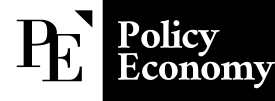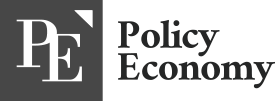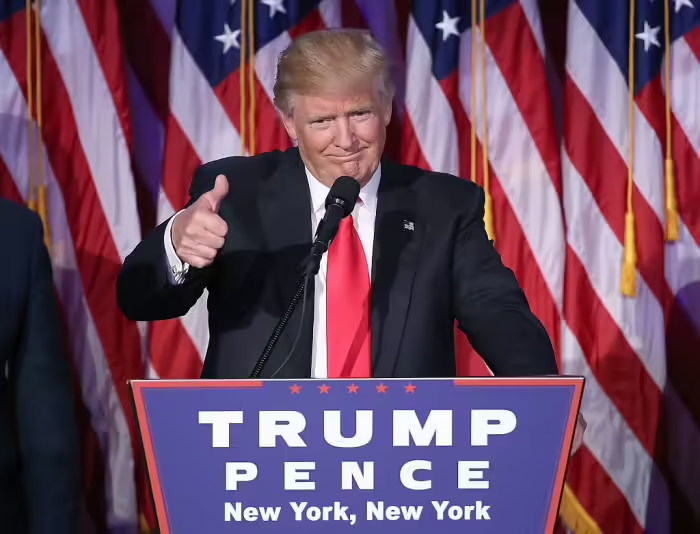[동아시아포럼] 인도네시아, 테슬라 새 공장 유치 성사될까?
지난해 4월, 위도도 대통령·머스크 CEO 회동 테슬라 투자 유치 위해 니켈 채굴권 등 제안 현재까지 인도네시아 투자 관련 움직임 없어
[동아시아포럼]은 EAST ASIA FORUM에서 전하는 동아시아 정책 동향을 담았습니다. EAST ASIA FORUM은 오스트레일리아 국립대학교(Australia National University) 크로퍼드 공공정책대학(Crawford School of Public Policy) 산하의 공공정책과 관련된 정치, 경제, 비즈니스, 법률, 안보, 국제관계에 대한 연구·분석 플랫폼입니다. 저희 폴리시코리아(The Policy Korea)와 영어 원문 공개 조건으로 콘텐츠 제휴가 진행 중입니다.
수년 전부터 테슬라는 인도네시아 시장에 진출하는 방안을 모색하고 있다. 인도네시아에서도 루훗 빈사르 판자이탄(Luhut Binsar Pandjaitan) 해양투자조정부 장관 등 주요 관료들이 나서 테슬라의 투자를 유치하기 위해 공을 들이고 있다. 지난해 4월에는 미국 텍사스를 방문한 조코 위도도(Joko Widodo) 인도네시아 대통령이 일론 머스크 CEO와 만나 인도네시아에 대한 투자 혜택으로 세금 감면, 니켈 채굴권 보장 등을 제안한 것으로 알려졌다.
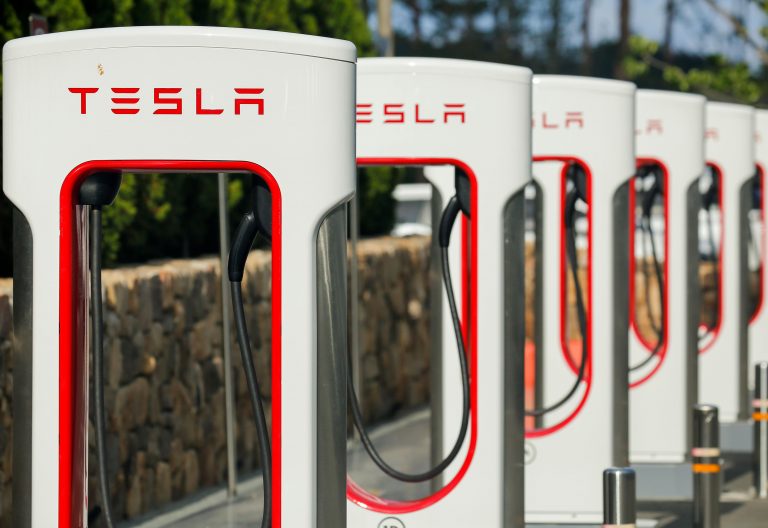
인도네시아, ‘동남아시아의 전기차 허브’ 구축 추진
지난해 머스크는 인도네시아 대기업인 바크리 앤 브라더스(Bakrie & Brothers)의 CEO 아닌댜 바크리(Anindya Bakrie)와 만난 자리에서 인도네시아 투자에 대해 긍정적인 입장을 밝혔지만 이후 지금까지 인도네시아 투자와 관련해 별다른 움직임을 보이지 않고 있다. 오히려 그 사이 테슬라가 말레이시아에 지역 사무소와 서비스 센터를 설립하기로 하면서 사실상 인도네시아의 기가팩토리 유치가 어려워진 것이 아니냐는 관측이 제기된 상황이다.
최근 인도네시아 정부는 ‘전기차 제조 강국’을 기치로 내세우며 전기차 배터리 허브 구축을 추진하고 있다. 이러한 목표를 달성하기 위해 우선적으로 추진해야 할 과제가 바로 인도네시아와 테슬라가 협업할 동기를 강화하는 일이다. 인도네시아는 글로벌 전기차 시장을 이끄는 선도국이 아닌 데다 충전소나 국가 도로망 등 인프라가 개발되지 않아 전기차 기반시설이 매우 열악한 상태다. 전기차 보급을 촉진하기 위해 정부 보조금이 지원되고는 있지만 지급대상이 자국에서 생산한 차량으로 제한된 데다 주로 전기 오토바이에 초점을 두고 있어 전기 오토바이를 생산하지 않는 테슬라에는 유인책이 되기 어렵다.
더욱이 현재 테슬라는 새로운 생산 허브를 구축하기보다는 동남아시아에서 더 많은 전기차를 판매하는데 목표를 두고 있기 때문에 인도네시아가 아닌 말레이시아가 더 매력적인 시장일 것이다. 실제 말레이시아는 다른 동남아시아 국가들에 비해 고소득층의 비중이 커 경제력을 갖춘 잠재 구매자가 더 많다. 이뿐만 아니라 이미 도로 인프라도 잘 갖춰진 데다 오는 2025년까지 전기차 충전소 1만 개를 설치한다는 계획도 갖고 있다.
태국·말레이시아·중국·일본 등 비해 경쟁력 낮은 인도네시아
테슬라가 동남아시아 지역에서의 판매량 제고에 초점을 둔 것과 달리 인도네시아 정부는 자동차용 배터리 생산 및 배터리팩 조립 생산공장을 유치해 국내 소비와 수출을 촉진함으로써 전기차 밸류 체인을 조성하기를 희망하고 있다. 하지만 테슬라는 지난 2019년 아시아의 생산 거점으로 중국 상하이에 기가팩토리를 설립·운영하고 있으며 수년 전부터 일본 파나소닉으로부터 전기차 배터리를 공급받고 있다. 인도네시아가 테슬라의 생산 네트워크에 참여하는 것이 불가능한 일은 아니지만 이미 테슬라의 공급망 내에서 오랜 기간 함께 해온 업체들이 있는 만큼 쉽지 않은 도전이 될 것으로 보인다.
설사 테슬라가 동남아시아에 생산 허브를 새롭게 건설할 계획이 있다고 하더라도 인도네시아는 가능성이 높은 후보 지역이 아니다. 가장 유력한 후보로 거론되는 국가는 태국이다. 인도네시아의 자동차 산업이 규모가 작은 내수시장을 기반으로 성장한 것과 달리 태국은 자동차 수출 분야에서 동남아시아 선도국으로 자리매김했다. 이러한 점에서 인도네시아가 태국과의 경쟁에 우위를 점하기는 힘들 것으로 보인다.
인도네시아가 전기차 생태계의 중심국이 되기는 어렵지만, 배터리 분야에서 테슬라의 공급망으로서 참여할 가능성은 있다. 인도네시아는 전기차 배터리 핵심 광물인 니켈의 최대 매장국이자 생산국으로, 전 세계 니켈 공급량을 통제하는 방법을 통해 전기차 시장의 전방산업을 주도해 왔으며 추후 자국에서 제련한 니켈로 배터리를 생산하는 단계까지 성장하는 목표를 가지고 있다. 최근에는 테슬라에 배터리 공급을 시작한 중국 배터리 제조사 CATL과의 협업을 통해 테슬라의 공급망에 편입되는 방안도 마련했다. CATL은 국영 기업인 인도네시아 배터리 코퍼레이션(Indonessia Battery Corporation, IBC)을 중심으로 한 인도네시아의 배터리 생산체계 구축에 수십억 달러를 투자하기로 약속했다.
테슬라 소비시장 아닌 배터리 공급망에 참여해야
다만 인도네시아사 전기차 배터리 공급망에 편입되는 전략은 복잡한 현안과 맞물려 있다. 지난해 시행된 미국의 인플레이션 감축법(IRA)에 따르면 인도네시아산 니켈을 사용한 전기차는 미국 정부의 전기차 세제 혜택에서 제외된다. 이에 인도네시아 정부는 IRA 규제를 우회하거나 양자 간 자유무역협정을 활용하는 방안을 모색하고 있다. 하지만 현재로서는 IRA 시행으로 인한 불확실성이 확대되면서 테슬라를 비롯한 자동차 제조업체들이 인도네시아를 공급망에 편입시키는 데 장애요인으로 작용하고 있다.
이러한 상황에 비춰볼 때 인도네시아 정부는 테슬라 외 다른 자동차 제조사들의 공급망에 참여하는 방안도 적극 고려할 필요가 있어 보인다. 예컨대 한국의 현대자동차와 일본 도요타는 이미 인도네시아에 대규모 제조 시설을 갖추고 있으며 수십 년에 걸쳐 비즈니스 관계를 유지하고 있다. 중국의 자동차 제조사 우링(Wuling)도 이미 인도네시아에서 자동차를 생산하고 있다. 동아시아의 기업들은 지정학적으로 테슬라에 비해 인도네시아의 주요 광물을 사용해 전기차를 생산하는 것이 유리한 데다, 이미 제조설비를 갖추고 있어 테슬라보다 빠르게 전기차 생산량을 확대할 수 있을 것으로 기대된다.
현재로서는 인도네시아와 테슬라 간의 협업이 성사될지는 미지수다. 하지만 이들의 전기차 파트너십이 성사된다면 이는 인도네시아의 소비자가 테슬라의 전기차를 구매하는 데 그치는 것이 아니라 니켈과 배터리 생산 분야에서 전기차 공급망에 편입하는 방식이 될 가능성이 높을 것으로 전망된다.
When will Tesla make a move in Indonesia?
For several years, Tesla and its CEO Elon Musk have flirted with entering the Indonesian market. The Indonesian government, under President Joko ‘Jokowi’ Widodo, has made overtures, with powerful actors like Coordinating Minister for Maritime Affairs and Investment Luhut Binsar Pandjaitan showing up at Tesla’s manufacturing plant in Texas in April 2022 to promote investment opportunities in Indonesia.

On the sidelines of the 2022 G20 summit in Bali, Musk was interviewed by Anindya Bakrie, CEO of Bakrie and Brothers, and said he was ‘bullish’ on Indonesia. Despite these sentiments, Tesla has not made a big move in the country. This lack of progress probably stings a little bit more given that Tesla opened a sales office in Malaysia and will be opening a showroom in Thailand. Indonesia may be beginning to wonder if it is being passed over by Tesla and the reasons behind this decision.
The first aspect to consider is Tesla’s objectives in Indonesia and Indonesia’s motivation for collaboration with Tesla. Indonesia is not currently a major market for electric vehicles. There are few charging stations and the national road system is underdeveloped. Government subsidies intended to encourage the uptake of electric vehicles have been hotly debated. In the short term, Indonesia is more likely to be a bigger consumer of electric scooters — which Tesla does not make — than electric cars.
If the goal is to sell four-wheeled electric vehicles in Southeast Asia in the near future, Tesla seems to believe Malaysia is a more attractive market. They have higher per capita income, meaning more people are likely to have the financial means to afford a Tesla. Malaysia also has better road infrastructure and has a plan in place to set up 10,000 electric vehicle charging stations by 2025.
On the other hand, Indonesia does not just want to be a market for Tesla, but also to play a role in production by building the batteries and assembling the battery packs for Tesla cars. Indonesia wants to move up the value chain and assemble and produce Tesla vehicles, either for domestic consumption or export.
The main obstacle to these plans is that Tesla already has a regional production hub in Asia — the Shanghai Gigafactory. The company has sourced its batteries from Japan’s Panasonic for many years. This means that, while it is not impossible for Indonesia to integrate into Tesla’s production networks, it will be a challenge, as the automaker already has well-developed supply chains with long-established suppliers.
Even if Tesla were planning to build a production hub in Southeast Asia, Indonesia is not necessarily the most likely candidate. While Indonesia’s automotive manufacturing industry has been growing on the strength of domestic demand, Thailand remains the regional leader in automobile exports. Even if Tesla felt that it needed another Asian production hub, Indonesia would face tough competition from Thailand for such a project.
The most likely place where Indonesia could fit into Tesla’s ecosystem is in batteries. Indonesia has been leveraging its control of global nickel supplies to invest in downstream industries. This includes nickel smelting and the use of refined nickel to make batteries. Chinese battery giant CATL has committed to investing billions of dollars, along with the state-owned Indonesia Battery Corporation, in Indonesian battery manufacturing. Tesla has started sourcing batteries from CATL, creating potential inroads into Tesla’s supply chains.
But there are complications in this area as well. The US Inflation Reduction Act of 2022 contained a provision that makes electric vehicles produced using Indonesian nickel ineligible for tax credits in the United States. The Indonesian government is exploring ways to circumvent this, for instance through a bilateral trade deal, but for the time being automobile makers including Tesla face an additional layer of uncertainty in integrating Indonesia into their supply chains.
It is also worth noting that Tesla is not the only, or even the biggest, game in town. South Korean and Japanese car makers like Toyota and Hyundai already have large manufacturing footprints in Indonesia and decades of experience and business ties in the country. Chinese firms like Wuling also already produce cars in Indonesia. These auto makers are well-positioned to produce electric vehicles using critical minerals and batteries produced in Indonesia. They can also likely scale up faster than Tesla since they do not have to build facilities from scratch.
It would be surprising if Indonesia and Tesla never do business together. But the form of this relationship is likely to extend beyond Indonesian consumers buying Tesla vehicles. Indonesia is likely to end up involved in the production of these vehicles too, with the most likely entry point being the use of Indonesian nickel and batteries.
원문의 저자는 싱가포르 난양공과대학(Nanyang Technological University) 라자라트남 국제대학원(S. Rajaratnam School of International Studies, RSIS)의 제임스 길드(James Guild) 외래연구원(Adjunct Fellow)입니다.
